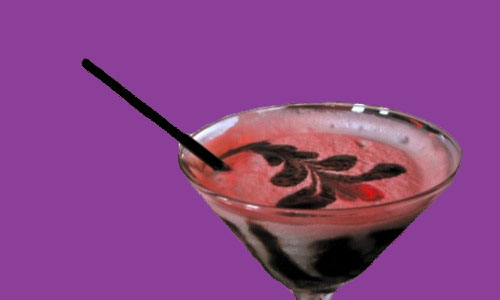| ONSET |
| Being drunk in exams: a good thing? |
| Ariella moldovan investigates a novel study technique, just in time for exams. |
|
|
 |
|
Picture this. You've just stumbled drunkenly into your room at 11pm, having recently left this week's uni party. You have put aside the time between now and tomorrow afternoon to study for tomorrow's exam. You did not plan on drinking tonight, but somehow it happened, and now you need to cram as much as possible into your tired, intoxicated brain. You begin studying almost immediately and work into the early hours of the morning, sobering up gradually. By midday, you have finished, and you are not nearly as drunk as you were earlier. The question of importance here is, of course, should you drink again before the exam? According to the theory of Mood-Dependent Memory, the answer is, YES, of course you should! Professor Eric Eich, from the University of British Columbia, explains. "Mood-Dependent Memory (MDM) is when you learn something in a particular affective state or mood, like happiness or sadness, it's easier to remember later if you are in the same mood". Discussions of MDM have been around for "eons", but the first experimental work was done in the 1970's and 1980's. However, going back a decade, there was a large body of pharmacological research on 'drug-dependent memory' accumulated in the 1960's referring, for instance, to the above example about alcohol. And in the 1930's, much work was done on 'place-dependent memory'. A good example of 'place-dependent memory' is the famous Baddeley study. Here participants learnt a list of words either underwater or on dry land. Later on, their recall was then tested in one of these two contexts. Baddeley found that participants who had learned the words underwater performed better if they were tested underwater, whereas participants who had learned the words on dry land recalled more if they were tested on dry land. Unfortunately, experimental results on mood-dependent memory, drug-dependent memory and place-dependent memory have all been like, "flipping a coin". Eich and his colleagues have worked at determining what factors are responsible for these effects when they do occur, and have successfully isolated 7 or 8. As he says, "it's like having a cookbook. When you know the ingredients you can make a cake". Eich argues that drug-dependent memory and place-dependent memory are all part of the larger phenomenon of mood-dependent memory. After all, in all of the drug-dependent memory studies, regardless of whether they used sedatives or stimulants, the important factor was whether or not the participant had been given a big enough shot of the drug to alter their mood. In studies like Baddeley's, Eich suggests that the way places look at learning and at test is irrelevant, "sometimes different environments make you feel different and that is key". As Eich puts it, "mood trumps everything". So, how can this knowledge help us, as students? One possibility that I find personally relevant is the nail-biting, heart-pounding terror that I experience every session, as we file into the examination rooms to sit our finals. Would it perhaps be beneficial for me to make myself feel terrified whilst I'm studying, perhaps by studying in an examination room? Unfortunately, the answer to this question is not so easy. Firstly, Eich points out that in an essay exam, where students are required to "generate their own cues", a match between moods at the time of learning and testing is probably important. However, in a multiple choice exam, most of the cues are external, so mood doesn't really come into it. Secondly, if you are extremely anxious (or extremely drunk) whilst you are studying, you will remember more of what you learnt when you are in a similar mood, but a drunk or highly-anxious person won't be able to learn much to begin with. As Eich tells us, "there won't be much information to retrieve…so it is not advisable to be drunk in the first place". |


